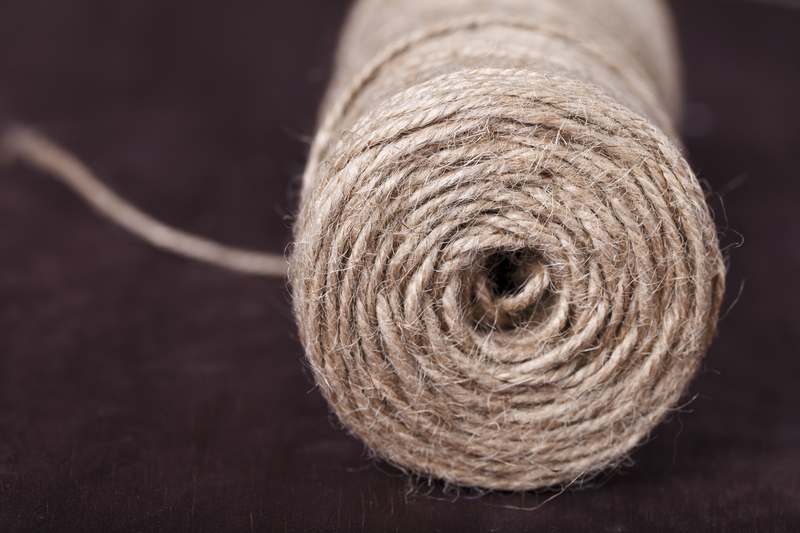Embark on Your Gardening Path: 9 Essential Tips for Beginners
Posted on 25/05/2025
Embark on Your Gardening Path: 9 Essential Tips for Beginners
Are you ready to dig your hands into the soil and create a thriving garden of your own? Starting your gardening journey is an exciting adventure filled with learning, patience, and satisfaction. Whether you have a sprawling backyard or just a sunny balcony, gardening is an enriching hobby that offers countless rewards--from beautifying your surroundings to harvesting fresh vegetables and flowers. In this comprehensive guide, you'll discover 9 essential gardening tips for beginners that will help you set your roots and watch your garden grow.
Why Start Gardening? Top Benefits for New Gardeners
Gardening goes far beyond the joy of seeing flowers bloom or tasting home-grown tomatoes. Let's look at some of the compelling reasons why embarking on your gardening path is a decision you won't regret:
- Mental Well-being: Gardening reduces stress, promotes mindfulness, and enhances mood.
- Physical Activity: Digging, weeding, and planting help keep you physically active.
- Sustainable Living: Growing your own vegetables and herbs can lower your carbon footprint.
- Connection with Nature: You'll develop a deeper appreciation for the cycles of life and seasons.

1. Assess and Understand Your Space
Your journey as a new gardener begins with understanding your unique environment. Whether you have expansive land, a small backyard, or even a windowsill, knowing your space is the foundation of successful gardening.
Key Considerations:
- Sunlight: Observe how many hours of direct sunlight different parts of your space receive. Most vegetables and flowers need 6-8 hours of light.
- Soil Type: Is your soil sandy, clay, or loamy? You can test this by wetting the soil and seeing if it clumps (clay) or falls apart (sandy).
- Drainage: After watering, see how quickly water disappears. Poor drainage can drown roots, while fast-draining soil may require extra watering.
- Space: Take measurements and think about what fits best--raised beds, containers, or traditional rows.
Tip: If you're short on space, container gardening and vertical gardens are fantastic solutions for balconies and patios!
2. Start Small & Set Realistic Goals
One of the most common mistakes when starting a garden is taking on too much too soon. Begin with a manageable garden that you can easily maintain. This allows you to focus your energy, learn at a comfortable pace, and enjoy your progress.
Steps to Avoid Overwhelm:
- Choose a small plot, or a few large containers for your beginner garden.
- Select 3-5 easy plants--vegetables like lettuce, radishes, or herbs such as basil and mint are ideal for beginners.
- Set clear goals: Do you want fresh herbs for cooking or a colorful flower bed?
Remember, gardening is a journey--not a race. Enjoy the process, learn from mistakes, and celebrate each new sprout!
3. Choose the Right Plants for Your Region & Season
Selecting the right plants for beginners is crucial to success. Not every plant will thrive in every environment. Discover your USDA plant hardiness zone or local climate zone, and use this information to pick varieties suited to your weather and season.
Best Plant Choices:
- Herbs: Basil, parsley, chives, oregano
- Vegetables: Lettuce, radishes, tomatoes, beans, zucchini
- Flowers: Marigolds, nasturtiums, sunflowers, pansies
Research your frost dates--this helps you know when to plant seeds outdoors or start them indoors. For a fruitful gardening path, begin with resilient varieties and gradually try more challenging plants as you gain experience.
4. Invest in Basic Gardening Tools
The right tools make gardening easier, more efficient, and enjoyable. Fortunately, starting a beginner garden doesn't require a complex kit! Here are the essentials every new gardener should have:
- Trowel
- Hand fork or cultivator
- Garden gloves
- Watering can or hose with an adjustable nozzle
- Pruners or scissors
- Small rake
Keep your tools clean and dry to ensure their longevity and prevent the spread of disease in your plants.
5. Nourish Your Soil and Fertilize Wisely
Healthy plants start with healthy soil. Before you begin planting, spend time enriching your soil. Well-amended earth boosts plant vitality and boosts your confidence as a new gardener.
Soil Preparation Steps:
- Test your soil with a kit from your local garden center. Check pH (ideal is usually 6.0-7.0) and nutrients.
- Add compost--this organic matter improves fertility and structure.
- Mix in well-rotted manure or organic fertilizers for additional nourishment.
- Avoid chemical fertilizers as a beginner; organic fertilizers are gentler and less likely to "burn" plants.
Tip: Mulching with straw, leaves, or wood chips helps retain moisture and suppresses weeds, making maintenance easier for beginner gardeners.
6. Master Watering Techniques
Learning how and when to water your plants is essential for gardening success. Both overwatering and underwatering are common pitfalls for those new to the hobby.
Guidelines for Effective Watering:
- Water early in the morning to reduce evaporation and risk of disease.
- Focus water at the base of plants, not on the leaves, to help roots absorb moisture directly.
- Check soil moisture by sticking your finger an inch into the soil; water only if it feels dry.
- Adjust frequency based on weather: More in heat, less in cool/cloudy conditions.
Consistency is key on your gardening path. Establish a routine, and your plants will thank you!
7. Keep Pests and Diseases in Check
Every garden faces pests and diseases at some point--but don't be discouraged. With vigilance and some natural strategies, you can protect your developing garden.
Eco-Friendly Practices for Beginners:
- Inspect plants regularly for chewed leaves, spots, or bugs.
- Remove pests by hand or with a gentle spray of water.
- Encourage beneficial insects like ladybugs and bees by planting flowers and avoiding harsh pesticides.
- Try homemade sprays with neem oil or mild soap for minor infestations.
- Practice crop rotation if you have the space to reduce disease buildup in soil.
Proactive care ensures your gardening journey stays enjoyable and your crops stay healthy.
8. Learn by Observing and Keeping a Garden Journal
One of the best ways to improve as a gardener is to watch your plants closely and record what you see. Documenting your garden's progress provides vital insights over time.
How to Use a Garden Journal:
- Write down planting dates, varieties, and weather conditions.
- Record when you fertilize, water, and notice blooms or fruit.
- Note any pest problems, remedies tried, and outcomes.
- Add photos to track growth and inspire you to keep going.
Tip: Reflect on your journal at the end of each season. You'll discover what worked, what didn't, and set yourself up for even better results next year!
9. Connect with Local Gardeners and Community Resources
Gardening is more fun and rewarding when you share it with others. Consider tapping into the wisdom of experienced gardeners and joining a community.
- Visit local garden centers or nurseries for advice and locally adapted plants.
- Attend gardening workshops and classes in your area.
- Join online gardening forums or social media groups for advice and inspiration.
- Volunteer with a community garden for hands-on learning.
Gaining support and sharing experiences will help you overcome obstacles and celebrate all the victories on your gardening path.

Bonus Tips for Beginner Gardeners
- Be patient--growth and success often take time.
- Celebrate small milestones, like your first sprout or flower.
- Don't fear failure; every gardener has losses and learns from them.
- Keep experimenting and seek out new knowledge every season.
Conclusion: Embrace Your Gardening Path with Confidence
Embarking on your gardening journey is a meaningful, rewarding pursuit that connects you with nature, nourishes your health, and offers delicious or beautiful returns. By following these 9 essential gardening tips for beginners--from understanding your space and choosing the right plants, to nurturing your soil and connecting with community--you'll set strong roots and enjoy growth for years to come.
Ready to start your own garden? Gather your tools, plant some seeds, and embark on the path to becoming a confident, joyful gardener. With curiosity, care, and a bit of patience, you'll discover just how rewarding gardening can be!
```
